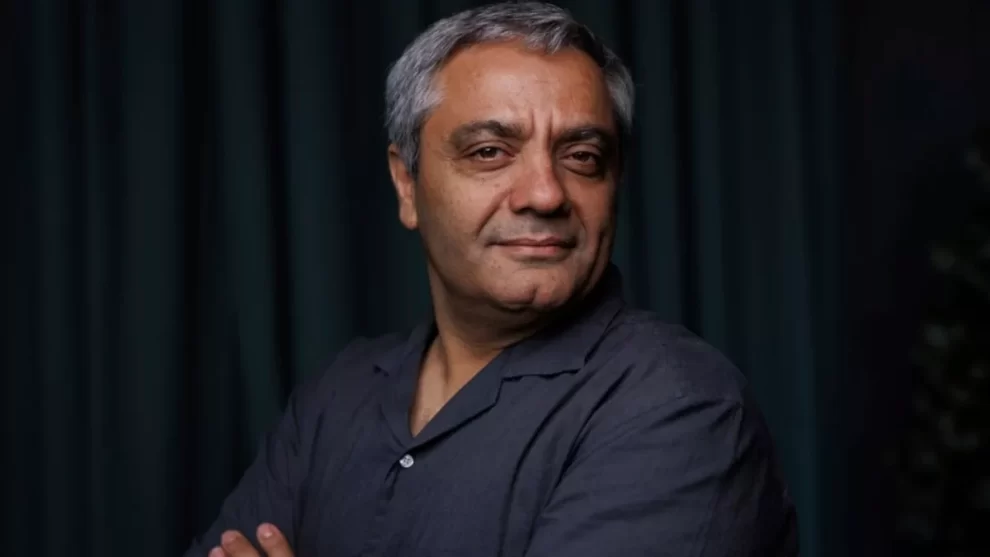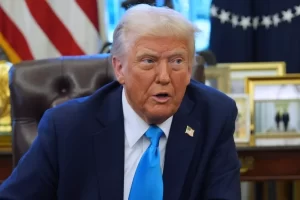Iranian director Mohammad Rasoulof arrived at the Cannes Film Festival after his dramatic escape from his homeland after being sentenced to eight years in prison.
Dissident Iranian filmmaker Mohammad Rasoulof has arrived at the Cannes Film Festival, following a clandestine escape from his native country which included an escape on foot across the mountainous borderland.
Rasoulof, 52, was facing eight years in prison when he decided to flee Iran. His films criticizing the Iranian regime have earned him critical acclaim over the years, as well as a long string of prison sentences, filmmaking bans and travel restrictions. He won Berlin’s Golden Bear in 2020 with There Is No Evil and the top prize in Un Certain Regard at Cannes in 2018 with A Man Of Integrity.
He now embarks on a life of exile, and will be on the Croisette to present his new film, The Seed of the Sacred Fig, in Competition. His recent sentencing was seen as a way to exert pressure on the film festival, so that the film would not be screened.
“I have many more stories to tell, many more narratives to create and films to make,” said Rasoulof, speaking through an interpreter at Cannes’ Palais des Festivals. “That’s what persuaded me to leave Iran. I had to go on with this mission. I feel that my mission is to connect the audiences of the world to these stories, to this Iranian narrative. This is my plan for the coming years.”
The news of his exile has not gone down well with the media close to the Iranian government. “Rasoulof, the pro-Western filmmaker whose bitter films show an Iran plunged into darkness, has turned his back on his country to become the favourite of the Cannes film festival”, reacted Iran Newspaper, a government publication.
“Festivals and ceremonies such as Cannes and the Oscars are supported financially and politically by the rulers of their countries, and they only give praise to films and filmmakers who serve the rulers’ objectives », continues the government media.
The Seed of the Sacred Fig will be shown to the press today (Friday 24 May) in competition, and the festival will award its top prize, the Palme d’Or, tomorrow evening.
The Seed of the Sacred Fig is set during the 2022 protests in Iran and includes real footage from demonstrations censored by Iran’s government. The film follows a family of four who internalize the political turmoil. The father, who works in the justice system, is forced to rubber-stamp sentences of protesters, as he grows increasingly suspicious of his wife and daughters.
Rasoulof says he remains optimistic of a return to his home country as “this situation cannot go on for long in Iran”.
“What’s going on now in Iran and the change that’s about to happen will come from these families, from the inside,” he says.
Already wrestling with social unrest and international sanctions, Iran is currently mourning the death of President Ebrahim Raisi, who was interred Thursday after being killed in a helicopter crash.
The Seed of the Sacred Fig was shot clandestinely in Iran, with a small cast and crew. Before the movie was edited, some actors also fled Iran. But others who helped make the film have been interrogated and their families summoned for questioning, the director said earlier.
About two weeks ago, Rasoulof arrived in Germany and rushed to finish work on the final print before sending it to the festival.
“Filmmaking and artistic creature are vital to me” Rasoulof explains. “This is my way of staying alive and carrying on with my life. There is no other way I can imagine living.”
Asked where he goes from here, Rasoulof says he’s already begun work on his next project, an animated work about a modern Iranian writer.
“My stories have to do with Iran but not Iran in a geographic sense,” says Rasoulof. “So I can do it anywhere. I don’t have to go back to Iran to tell Iranian stories.”
Source: Euronews































